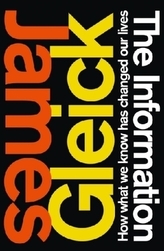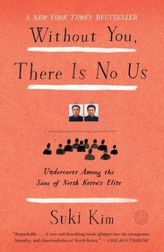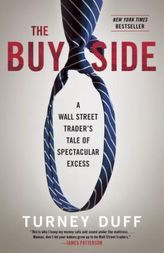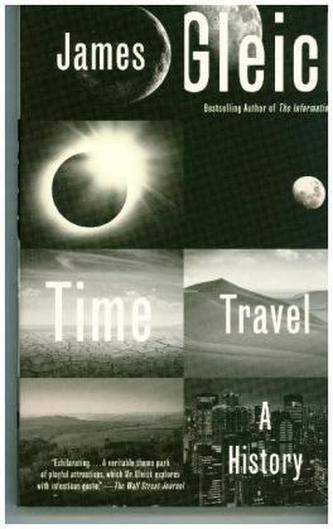Time Travel
33
%
221 Kč 329 Kč
Expedujeme 1 až 2 dny
Sleva až 70% u třetiny knih
ONE
Machine
A man stands at the end of a drafty corridor, a.k.a. the nineteenth century, and in the flickering light of an oil lamp examines a machine made of nickel and ivory, with brass rails and quartz rods-a squat, ugly contraption, somehow out of focus, not easy for the poor reader to visualize, despite the listing of parts and materials. Our hero fiddles with some screws, adds a drop of oil, and plants himself on the saddle. He grasps a lever with both hands. He is going on a journey. And by the way so are we. When he throws that lever, time breaks from its moorings.
The man is nondescript, almost devoid of features-grey eyes and a pale face and not much else. He lacks even a name. He is just the Time Traveller: for so it will be convenient to speak of him. Time and travel: no one had thought to join those words before now. And that machine? With its saddle and bars, it's a fantasticated bicy cle. The whole thing is the invention of a young enthusiast named Wells, who goes by his initials, H. G., because he thinks that sounds more serious than Herbert. His family calls him Bertie. He is trying to be a writer. He is a thoroughly modern man, a believer in social ism, free love, and bicycles. A proud member of the Cyclists' Touring Club, he rides up and down the Thames valley on a forty-pounder with tubular frame and pneumatic tires, savoring the thrill of riding his machine: A memory of motion lingers in the muscles of your legs, and round and round they seem to go. At some point he sees a printed advertisement for a contraption called Hacker's Home Bicy cle: a stationary stand with rubber wheels to let a person pedal for exercise without going anywhere. Anywhere through space, that is. The wheels go round and time goes by.
The turn of the twentieth century loomed-a calendar date with apocalyptic resonance. Albert Einstein was a boy at gymnasium in Munich. Not till 1908 would the Polish-German mathematician Hermann Minkowski announce his radical idea: Henceforth space by itself, and time by itself, are doomed to fade away into mere shadows, and only a kind of union of the two will preserve an inde pendent reality. H. G. Wells was there first, but unlike Minkowski, Wells was not trying to explain the universe. He was just trying to gin up a plausible-sounding plot device for a piece of fantastic story telling.
Nowadays we voyage through time so easily and so well, in our dreams and in our art. Time travel feels like an ancient tradition, rooted in old mythologies, old as gods and dragons. It isn't. Though the ancients imagined immortality and rebirth and lands of the dead time machines were beyond their ken. Time travel is a fantasy of the modern era. When Wells in his lamp-lit room imagined a time machine, he also invented a new mode of thought.
Why not before? And why now?
The time traveller begins with a science lesson. Or is it just flummery? He gathers his friends around the drawing-room fire to explain that everything they know about time is wrong. They are stock characters from central casting: the Medical Man, the Psycholo gist, the Editor, the Journalist, the Silent Man, the Very Young Man, and the Provincial Mayor, plus everyone's favorite straight man, an argumentative person with red hair named Filby.
You must follow me carefully, the Time Traveller instructs these stick figures. I shall have to controvert one or two ideas that are almost universally accepted. The geometry, for instance, that they taught you at school is founded on a misconception. School geometry-Euclid's geometry-had three dimensions, the ones we can see: length, width, and height.
Naturally they are dubious. The Time Traveller proceeds Socrati cally. He batters them with logic. They put up feeble resistance.
You know of course that a mathematical line, a line of thickness nil, has no real e
| Autor: | Gleick, James |
| Nakladatel: | Bantam Books |
| Rok vydání: | 2017 |
| Jazyk : | Angličtina |
| Vazba: | Paperback / softback |
| Počet stran: | 352 |
Mohlo by se vám také líbit..
-

Chaos
Gleick, James
-

The Information
Gleick, James
-

American Girls: Social Media and the ...
Sales, Nancy Jo
-

Open, English edition
Agassi, Andre
-

Jim Henson
Jones, Brian Jay
-

M Train
Smith, Patti
-

Without You, There Is No Us
Kim, Suki
-

Grace
Coddington, Grace
-

Behind The Beautiful Forevers
Katherine Boo
-

My Promised Land. Mein gelobtes Land,...
Shavit, Ari
-

With the Old Breed. Vom alten Schlag,...
Sledge, Eugene B.
-

The Buy Side
Duff, Turney
-

A Game of Thrones Leather-Cloth Boxed...
Martin, George R. R.
-

A Game of Thrones, 5 Vols.
Martin, George R. R.
-

The World of Ice & Fire
Martin, George R. R.
-

Stories of Your Life and Others
Chiang, Ted





